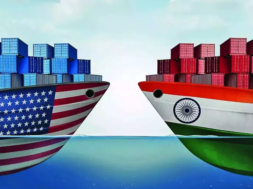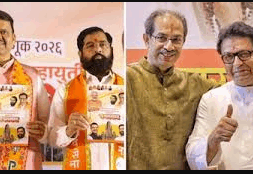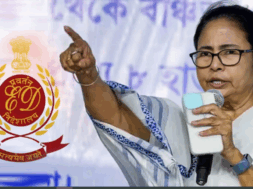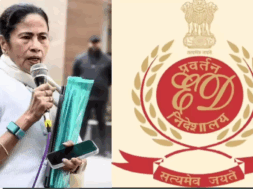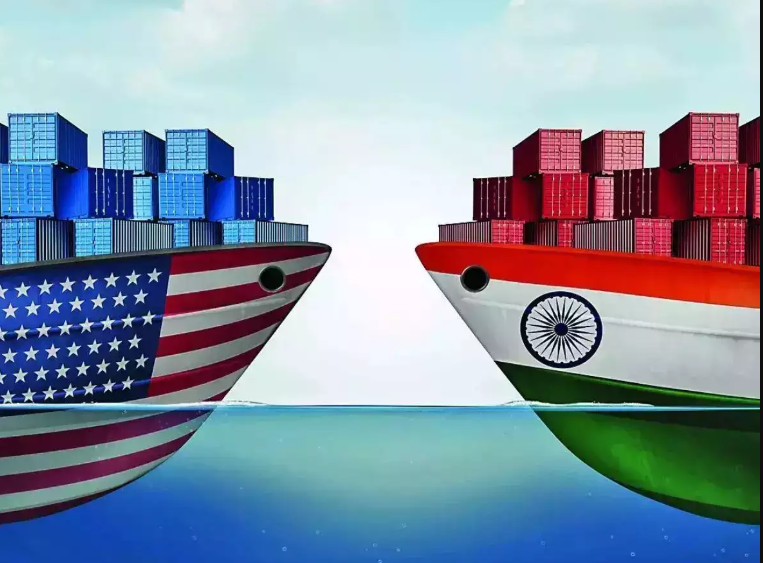
Manas Dasgupta
NEW DELHI, Apr 3: The Swadeshi Jagaran Manch (SJM), the economic wing of the Sangh Parivar, believes that India was paying a heavy price for complying with international agreements which the United States seem to be discarding now with its President Donald Trump entering into a tariff war and suggested India to follow suit.
Noting that the Mr Trump’s new tariffs were tantamount to total disregard of the institutions like the World Trade Organisation (WTO), economist and co-convenor Ashwani Mahajan said India should also “dump” the Trade-Related Aspects of Intellectual Property Rights (TRIPS). TRIPS is the WTO’s comprehensive multilateral agreement on intellectual property, not always weighted in favour of developing nations.
“What we see is a total disregard of the WTO. We signed WTO, and we were given higher bound tariffs for the reason that we had accepted, the TRIPS, TRIMS, services and agriculture in General Agreement on Tariffs and Trade (GATT), and the agreement on TRIPS had cost us heavily in terms of outgo of royalty. We have approximately gone from negligible amount of royalty to $17 billion dollars plus,” Mr Mahajan said.
“We can also disregard WTO and dump TRIPS. Maybe it’s too early to say this, but if WTO doesn’t exist, then why should TRIPS? TRIPS as an agreement is inhuman. For example, we had pleaded with developed countries to keep medications for COVID outside of TRIPS but they did not agree. It was clearly all for profit. If the West can be so sensitive towards their profits, why should we not be sensitive vis a vis our humanitarian needs?” Mr Mahajan asked.
He, however, saw some “silver lining” for India in Mr Trump’s trade tariffs announcement on Wednesday night dubbed as “Liberation Day.” “If we look at the list of countries tariff-wise, our number comes at 19th, and China is 11th, I believe. There is a difference of around 8% between India and China. So [between] India and China, who are the main competitors so far as the U.S. markets are concerned — may it be chemicals or other kinds of products, and despite the fact that Indian industries have not been able to compete in India, but they compete in U.S. — we may get a relative advantage,” he said.
“We see a silver lining in this relative difference, that India would gain market access in the U.S. more than it had before these Trump tariffs were announced. Say, if Chinese products become 34% costlier, Indian products will be 26% costlier,” he said.
He did, however, strike a note of caution on market access with regard to agriculture, dairy and small scale industries. “The Indian government should continue efforts to protect agriculture and issues of livelihood,” he said.
Mr Mahajan added that, unless India imposed retaliatory tariffs, he did not see prices getting hit in India. “So far as the Indian government’s mindset is concerned, they are ready to tweak tariffs on automobiles, especially electric vehicles, and these are not in competition with Indian automobile manufacturers. In U.S. certainly, I forsee inflation, as they have imposed tariffs across the board,” he said.
The issue was also debated in Parliament with several members including those from parties belonging to the ruling National Democratic Alliance (NDA) at the Centre, on Thursday flagging the US imposing a 27 per cent reciprocal tariff on India.
In one of the first comments from the government, Minister of State for Finance, Pankaj Chaudhary, said India was assessing the tariff hike imposed by the US and its impact on India. “For (Donald) Trump, it’s America first but for Modi, it’s India first. We are assessing the impact of reciprocal tariffs imposed by the US,” he said on the sidelines of an event in New Delhi.
The opposition parties, including Congress, Left outfits, and the Shiv Sena (UBT), who demanded to know the Union government’s plans to protect India’s industry and agriculture while the Sangh Parivar affiliates maintained that the government was committed to protecting the interests of India’s farmers and small-scale industries.
Mr Lavu Sri Krishna from the Telugu Desam Party (TDP), asked the Centre to protect Andhra Pradesh’s 800,000 farmers, who are likely to be hit by the 27 per cent tariff on seafood. Ecuador, a competitor of India in the sector, has been hit with only a 10 per cent tariff. He added that $ 3.5 billion of exports of seafood take place every year from the state. The TDP is a constituent of the NDA.
In the Rajya Sabha, Aam Aadmi Party (AAP) MP Raghav Chadha suggested that the government should use its approval to Tesla founder Elon Musk’s Starlink satellite internet services to renegotiate the 27 per cent tariff.
In Mumbai, addressing a press conference, Shiv Sena (UBT) chief Uddhav Thackeray said the Centre should have taken people into confidence about the “impending danger” of US tariffs and the steps being taken to alleviate it. Mr Thackeray said both Houses of Parliament should have set aside all other business and held discussions on the impact of US reciprocal tariffs on India.
In Madurai, CPI (M)’s Brinda Karat slammed the BJP-led NDA government for its silence over the tariffs imposed by the United States.
